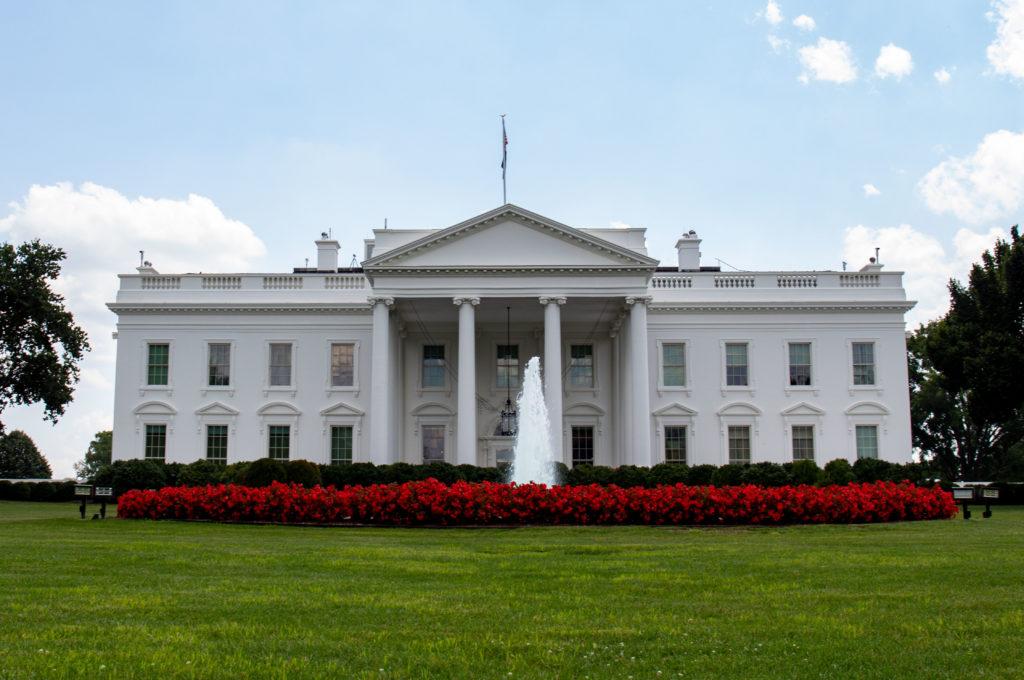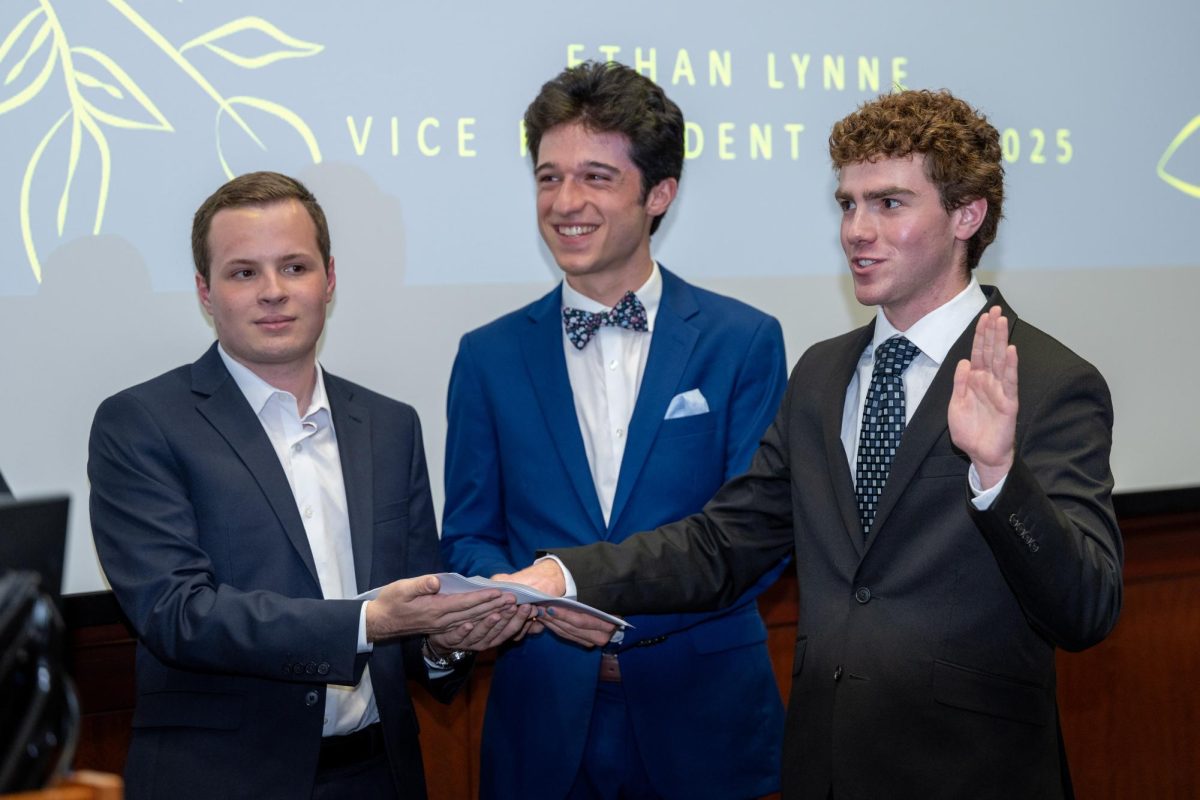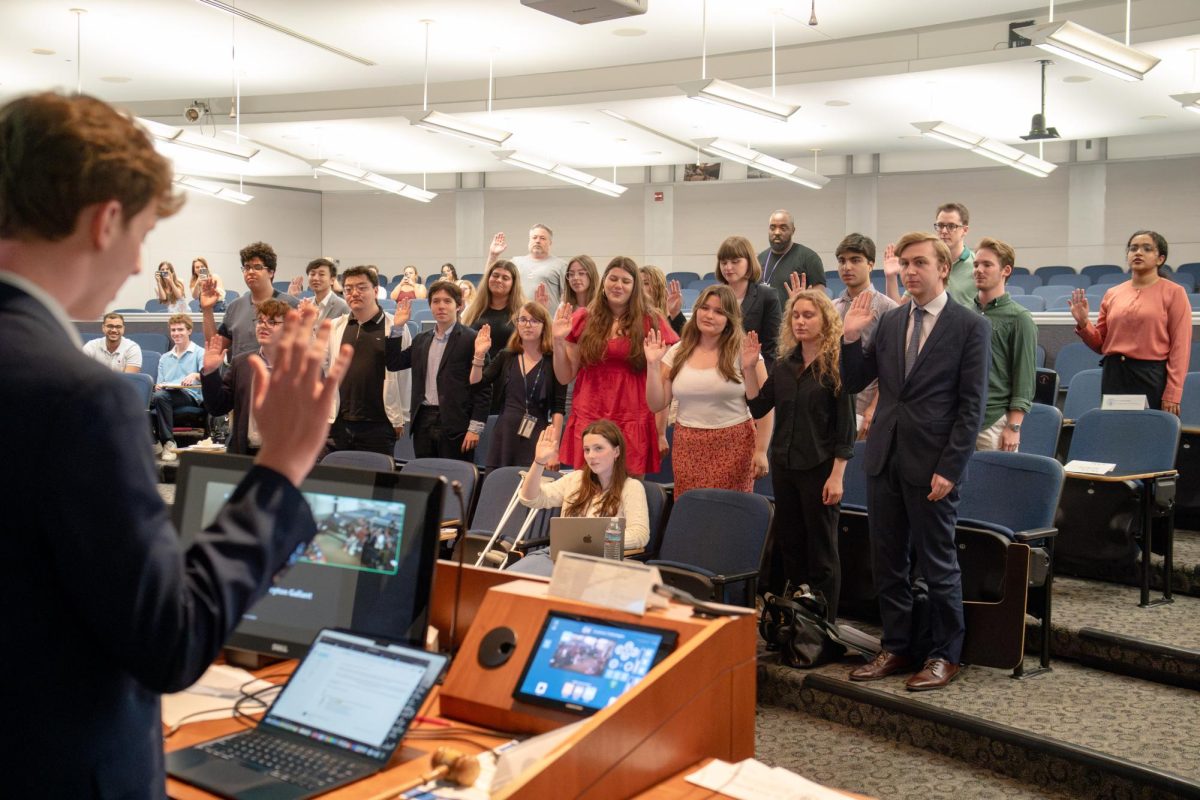A doctoral candidate with three years of Student Association experience announced his campaign for executive vice president Thursday.
Sen. Brady Forrest, G-at-Large and senate pro-tempore, is running on a platform billed “Every Student, Every Day,” which includes addressing student food insecurity, establishing a diversity and inclusion task force and creating more sustainability initiatives. He said the transition from senator to pro tempore to executive vice president is a natural one that will allow him to take on bigger projects than the initiatives he’s been able to push out in the past.
As a graduate student who works with undergraduates in the senate, Forrest said he is in a position to bring the two communities – which rarely interact – together to address wider issues that affect both groups, like food insecurity.
“I think I can be that bridge, especially in the EVP role, where I can work with graduate senators, where I can work with undergraduate senators and also talk with administrators and the Faculty Senate to get some tangible things done,” Forrest said.
He said the first step in addressing student food insecurity is recognizing that there is no blanket solution for the issue and that graduate and undergraduate students have different needs. He said he plans to start a conversation among graduate students to make them aware of the discounted meal packages that exist for them if they choose to use dining dollars instead of their debit cards.
Forrest said he would try to incentivize graduate students to use their GWorld card to pay for food by phasing in a discount at merchants. Graduate students don’t receive meal plans because they don’t live on campus, but they can add “Colonial Cash” to spend at GWorld vendors.
GW takes a 10 percent cut of all GWorld sales, which Forrest said could be reduced in exchange for giving GWorld users a discount. He said the University could still take a small cut of sales, students would get cheaper food and vendors would get more business – a win for all three parties.
“I think what’s super important is that no one’s going to come to the table if they know that there’s going to be a radical change and they aren’t going to be happy,” he said.
Forrest said he also plans to advocate students be able to take an 18th course credit without paying extra on their tuition bills. Students are currently capped at 17 credits per semester and must pay roughly $1,500 for the 18th, according to the Office of Student Financial Assistance. Last year’s SA candidates proposed the same initiative, and presidential candidate Ashley Le also included it in her platform.
Forrest said next week, two SA senators will introduce legislation to allow the student body to vote on whether or not they would like a free 18th credit through a student referendum. He said he will conduct more research into how an 18th credit can feasibly be implemented because officials have been slow to approve the measure, fearing the University will take a financial hit.
He said officials have agreed to give the SA the number of students who currently pay for an 18th credit in the coming weeks, and he has explored ideas, like creating a fund to allow people to take an 18th credit or phasing the credit into majors that need it more than others.
“That way, there’s no jolts to the system and the admin can get together a plan for this,” he said.
Forrest said he will also focus on sustainability initiatives, especially in light of the announcement of a $2 million sustainable investment fund this week, which the University will use to invest in socially responsible companies and funnel the returns into financial aid. He said he will focus on smaller sustainable initiatives – like the SA’s campaign to save a million pieces of paper by the end of the academic year – to reduce GW’s carbon footprint.
Forrest said he will work with the Faculty Senate to amend its handbook and encourage faculty to make syllabi available online, so that students can choose whether they want to print a copy and then professors don’t need to print syllabi in masses. He said he also wants to make the switch to 100 percent recycled paper at on-campus WEPA printers.
Forrest added that he is working to create a diversity and inclusion task force on the SA Senate by the end of the academic year that will include one senator from every committee and several students nominated by the SA president, with guidance from the MSSC and the Office of Diversity, Equity and Student Engagement. He said diversity has been a long-time priority for him but one that has been amplified in the wake of a recent racist Snapchat post that sparked outrage on campus last month.
He said the task force will ensure that diversity is a topic that doesn’t end with one incident. To quell the outrage following the Snapchat, officials announced nine steps to address campus racism and pledged to start a longer-term effort.
“There should be a body that focuses on this, that talks with the University about what diversity and inclusion means – what does it mean for communities of color to see some of the things we’ve been seeing kind of across the country the past few years especially?” Forrest said.
Dani Grace, Lizzie Mintz and Meredith Roaten contributed reporting.





